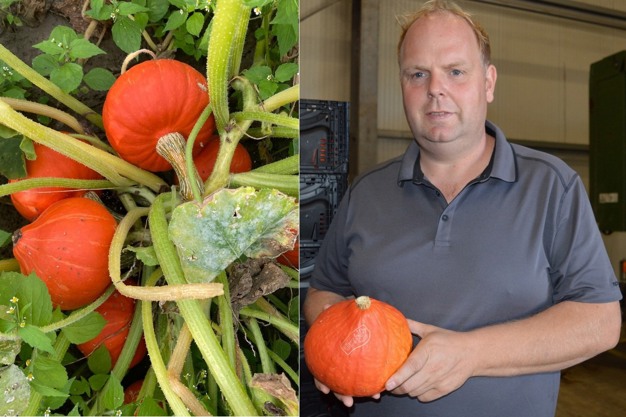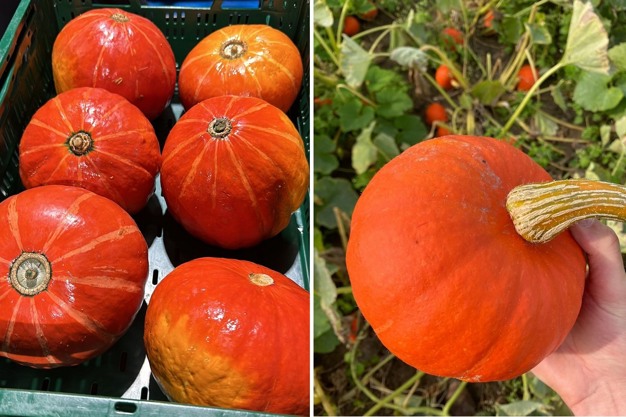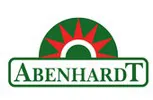Due to the adverse weather conditions last spring, many crops had to be sown relatively late this year, including organic pumpkins. "The humidity in the summer then had a positive effect on yields, so that our Naturland pumpkins will still be available for the next few weeks of sales. It is likely that there will be domestic association goods until the end of January, whereas in previous years we were already through by mid-January," says Carsten Abenhardt, who supplies both the organic food trade and the regular food retail trade with organic pumpkins.
From a cultivation perspective, the 2024 pumpkin year has got off to a good start so far, Abenhardt continues. "The bottom line is that we have significantly fewer oversized pumpkins than in last year's season, while the small-sized goods (600 to 800 grams) are particularly popular in the natural food trade and in the rescuers' box segment. Meanwhile, there is plenty of product available in the common sizes, i.e. 800 to 1,200 grams and 1,000 to 1,500 grams. Our cultivation capacity is stable at last year's level, which is due, on the one hand, to our agreements with customers and, on the other, to crop rotation. The demand and the amount grown are measured accordingly."

Carsten Abenhardt is dedicated to the cultivation and sale of Naturland pumpkins, around 95 percent of which are Hokkaido. Butternut pumpkins are also cultivated.
Due to Halloween (October 31), pumpkins traditionally get more attention in calendar weeks 43 and 44. As Abenhardt knows from experience, when the weather gets colder, demand for pumpkins usually remains high even after Halloween. "It's actually still a few degrees too warm for pumpkin soup. We still need positive impulses in sales here. Otherwise, we have been seeing a high frequency of promotions since September, which may also indicate inflation-related consumer reluctance. When an item is on promotion, many consumers are probably interested in the price, which is why they then buy more of it. The fact is that the promotions are going well and are being used a lot."
According to Abenhardt, the organic Hokkaido has a clear right to exist, not only as a promotional item, but in general. "The item is suitable for many uses and is attractively priced compared to many other vegetable crops. In this respect, it is and remains an affordable and versatile vegetable." At the moment, the association's products are being sold at prices of around 1.25-1.35 EUR per kilo, while the conventional equivalent is being offered to the trade at 0.75-0.85 EUR/kg. He says that there will be a further price increase in the second phase of the season.

Field-fresh organic Hokkaido pumpkins.
Gradual extension of the season
Until Christmas, regular advertising campaigns with domestic association goods are to be expected. After the turn of the year, Dutch organic goods will be offered to the trade to bridge the gap. In late March, Abenhardt will start sourcing pumpkins from southern Europe, mainly from Spain. "Last year, for the first time, we also supplied selected chains with organic pumpkins from Spain and Egypt in May and June. This was initially a kind of pilot, which we would like to continue this year depending on demand. We are excited to see how summer squashes are received by consumers and whether the item will ultimately catch on."
Photo credit: Abenhardt GmbH & Co. KG
For more information:
Carsten Abenhardt
Abenhardt GmbH & Co. KG
Markfelder Street 15
D - 45711 Datteln
Phone +49 (0) 2363 / 3659870
Fax +49 (0) 2363 / 8362
e-mail: [email protected]
www.abenhardt.de
